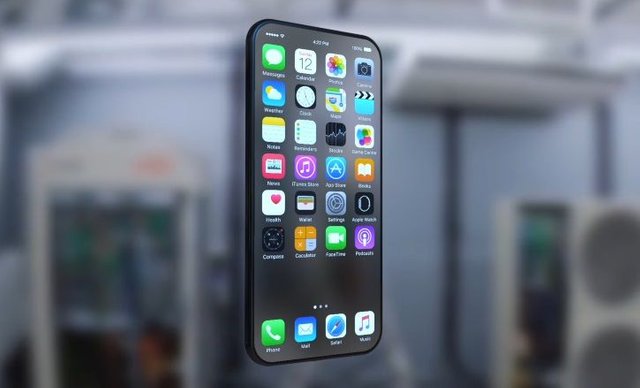The most shocking thing about WSJ’s iPhone 8 report might have been completely wrong
A The Wall Street Journal report shell-shocked iPhone fans on Tuesday, providing two clues about the upcoming iPhone 8. According to the paper’s sources, the iPhone 8 will have a curved display, a detail mentioned in other reports but something has yet to be confirmed. The more interesting tidbit in the report concerned the iPhone 8’s courageous ports. The Journal said the iPhone 8 will “introduce other updates including a USB-C port for the power cord.”
This detail sparked Lightning vs. USB-C debates around the web, with supporters of either connector having some solid arguments. It turns out there may another way to interpret The Journal’s remarks though, and it may negate the entire debate.
Lightning is Apple’s proprietary port, one in introduced only a few years ago, and the type of tech Apple wouldn’t normally give up just yet — especially considering the wireless future we’re heading toward. But USB-C fans will tell you that the iPhone 8 adopting the port that Apple pioneered is actually great news, as it could bring fast-charging support to future iPhone batteries.
Well-connected Apple blogger John Gruber weighed in on the matter, saying that he doesn’t expect Apple to ditch Lighting for USB-C.
“My expectation has been that iPhones will never switch to USB-C — that Apple would stick with Lightning until they can do away with external ports entirely,” Gruber noted. “I have no inside dope on this, but it rings false to my ears.”
However, he pointed to a more likely scenario. The iPhone 8’s charger cord may have a Lighting connector at one end, and a USB-C connector at the other.
“I’d bet that this year’s iPhones will ship with USB-C chargers, that use a USB-C to Lightning cable to connect to the phones,” he wrote. “That makes sense, given that Apple has dropped USB-A ports from the newest MacBook models.”
Apple may be the only company that’s currently betting big on USB-C ports in new MacBooks, offering no other ports to users, but it’s hardly the only company adopting USB-C connectivity. One of the highlights of the future line of Lenovo PCs is Thunderbolt/USB-C connectivity alongside traditional ports. Other Windows device makers also have USB-C-ready computers out there, and Samsung’s latest Chromebooks pack USB-C ports as well.
It makes perfect sense for Apple’s iPhone 8 charger to support USB-C instead of USB-A while retaining the Lightning connector on the end that plugs into the iPhone. After all, not all iPhone users have Macs, and people still connect their iPhones to their computers.
As it is now, you can’t connect the brand new iPhone 7 (or any other iPhone) to the new MacBook Pro using a single wire. You need at least one dongle, as seen in the image above.
The Journal’s report seems to indicate that USB-C is meant to replace Lightning. “They said Apple would introduce other updates including a USB-C port for the power cord and other peripheral devices, instead of the company’s original Lightning connector,” the report says. But maybe something was lost in translation there, and Gruber is correct about Apple’s plans for the new iPhones.